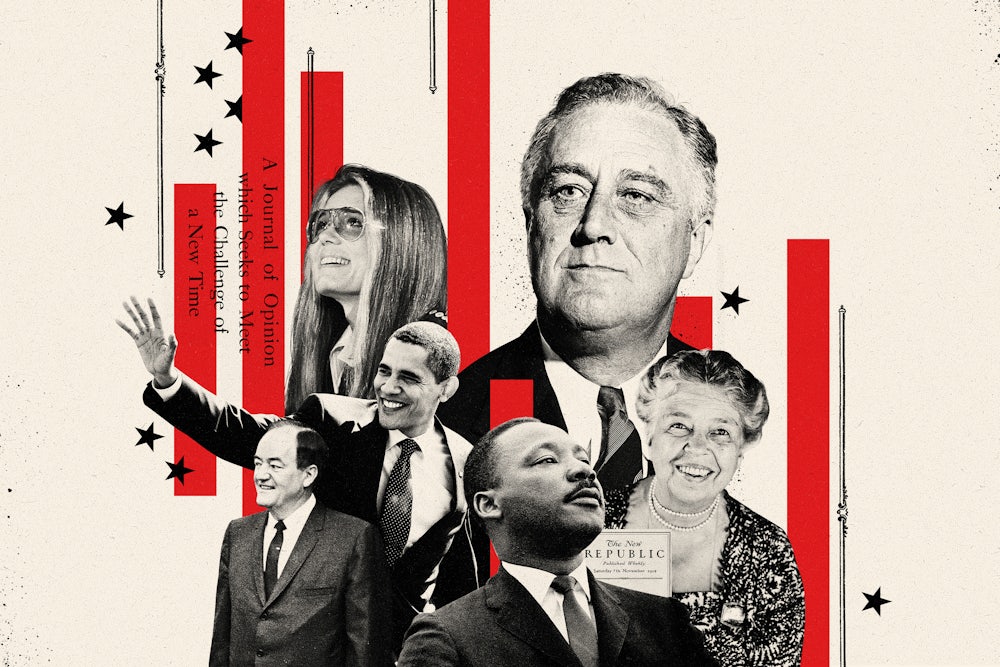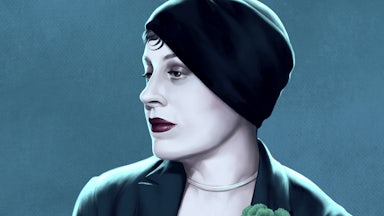I sometimes marvel that liberalism manages to hold its own in this, or really any, country. Its insistence upon openness to change and new ways of thinking is, let’s admit it, a pretty large boulder to be carrying right out of the chute. Your average person is suspicious of change and perfectly content with the old ways of thinking. As much as liberals might wish otherwise, the desire to conserve runs far deeper in the human soul than the desire to reform.
The natural liberal disadvantage is, alas, quantifiable. Going back to 1992, Gallup has done a yearly survey asking Americans if they considered themselves moderate, conservative, or liberal. The 2024 numbers: moderate, 36 percent; conservative, 36; and liberal, just 25. But don’t despair! Twenty-five is good! Back in 1992, the distribution was moderate, 43; conservative, 36; and liberal, 17. (As for left of liberal, Gallup doesn’t even bother, although a 2021 Pew survey that tried to drill down more specifically found “progressive left” clocking in at just 6 percent.)
A stroll through American history makes readily apparent the reality that our default position as a society has been resistance to change, which carries on for ages—or more often, is enforced, and usually brutally—followed by paroxysms of progressive reform, which are in turn followed by backlash against said reform. The periods of liberal regnancy in this country’s 248-year history can easily be counted on one hand.
And yet, given all that, liberal change has proved remarkably durable. People may spend years allowing themselves to be convinced by powerful interests that they’re indifferent to this or that liberal reform; but once it happens, they usually like it. And so conservatives in Washington have not found it easy work to walk back public education, dismantle Social Security, reduce or revoke the federal minimum wage, reintroduce child labor, and so much more. Liberalism constructed the modern welfare state, for mostly better and occasionally worse; every Republican president since Reagan has taken office vowing to smash it, and every one of them has left office being calumniated by fiscally obsessed rightists as just another feckless big spender, unable to reverse liberalism’s grimly inevitable tide. For a creed that is reputed to lack conviction, that’s not a bad track record.
Today, though, is different. Today, it really does feel like the barbarians are at the gate. As Thomas Paine put it, “tyranny, like hell, is not easily conquered.” And as the rapper Fat Joe put it, “The shit is real.” We must fight as we never have, or we genuinely and literally stand to lose everything. The assault on the ban on child labor—the ban on child labor!—is the least of it.
Can liberalism guard the gate?
Mindful of the cycles of history alluded to herein, and of the apocalyptic circumstance in which we find ourselves, I asked the contributors to this special section the following question, which seemed appropriate to a “celebration” of this magazine’s governing ethos on the occasion of its 110th anniversary (another sign of liberalism’s surprising stoutness):
The word “liberal” comes from the Latin liber, which means “free.” Three times in American history, liberalism has triumphed over conservatism to defeat forces of reaction and expand freedom: in the 1850s and ’60s, when slavery was ended; in the 1930s, when “freedom” first took on an economic dimension with the New Deal; and in the 1950s and ’60s, with the civil rights movement and the other personal liberation movements that followed.
The United States is at a similar—or more severe—inflection point today. Is today’s liberalism equipped to win this battle? Where, in recent years, has it succeeded, and where has it failed? Given that most Democrats are loath to even call themselves “liberal,” is the word—and the belief system—an anachronism, or is it due for a rebirth?
In his answer, Maryland Representative Jamie Raskin is the most optimistic—perhaps not surprising, considering that he’s a politician in the arena, and those in the arena have to maintain faith in a way critics don’t. The other four—three of our country’s most brilliant academics (Danielle Allen, Jefferson Cowie, Nell Irvin Painter), and a writer and podcaster (Sam Adler-Bell) who identifies as a socialist but admits in these pages to certain liberal habits of heart and mind—offer thoughtful mixtures of optimism and trepidation. It seems appropriate to the moment. But remember: Liberalism has been counted out before.




